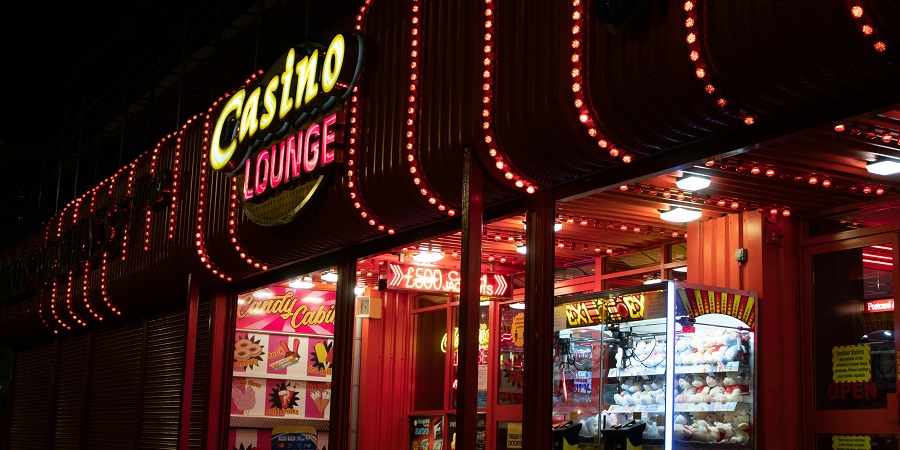History of casinos is a rich story of years, culture, economy and human curiosity about luck. Modern day casinos can be traced back to the ancient world to China and specifically Rome where chance was part of the community. The earliest recorded gambling games are the Chinese from around 2300 BC While the Greeks and Romans used to bet on everything from horses to chariot races making gambling a very familiar entity to them. These crude betting patterns set the tone for organized betting that formed the basis for proper casinos like JeffBet.
The very first casino in terms of structure was “Il Ridotto”, and it was established in Venice, Italy, in 1638. Il Ridotto was owned and operated by the government of Venice and signified a shift from people simply placing bets to engaging themselves in official gambling that was a culminating point of the arriving evening, to play on the game of chances including Biribi and Bassetta. It blossomed into diverse casinos across Europe; in the 18th and 19th century France, Germany and Monaco paved the way to casinos. Monte Carlo is also associated with high-end gambling, especially after the French casino owners – the Blanc brothers – have patented the wheel which was made more efficient for the house and contributed to the further development of the Monte Carlo image of the gambling city.
In the United States gambling developed from social, legal, and even, economical changes as this paper will highlight. Frontier town saloons in the west in the nineteenth century initiated games that include poker and blackjack thereby developing a gambling legal regime regardless of the differing laws that were placed. They will continue to bet in all ‘wide open and sin city locations’ such as New Orleans and in the new developing city of New York even if there are laws against it and sporadic moral outrage. The twentieth century brought a huge change in American gambling through Nevada’s legalizing of the gambling in the year 1931 in a bid to combat economic depression.
This move paved the way for modern day Las Vegas, where it had legal casinos going alongside the building of the Hoover Dam. Essential personalities such as Bugsy Siegel made it their job to grow Las Vegas to become a fabulous casino city, particularly as represented by Flamingo in the 1940s. From the 1950’s and the 1960’s Las Vegas was branded “Sin City” and was famous for its luxurious and first class casinos, glamourous performers, and repeaters traveling from distant parts of the world cementing a powerful brand for American gambling.
This is what Las Vegas had to offer in this new kind of gambling resort idea that was transplanted to Atlantic City in the 1970’s to help revive an almost dead economy. Native American casinos, initial in the Indian Gaming Regulatory Act of 1988, swept open a new vista of making the tribal territories to stage games which then became the revenue creating focus for many a native.
The next decisive epoch in the casino business also appeared in the 1990s with the launch of Internet gambling. The information technology industry has also fueled growth in online casinos and gambling in that, in 1996, Microgaming Corporation developed the first intelligent free-code casino. This evolution extended the casino experience to the worldwide panorama making gambling as an effortless home entertainment that could be done online. The market of online casinos rapidly expanded; by the end of the 1990s, over 200 online casinos existed although fears about their security and fairness still remained. Fears of financial insecurity, scams, and slow internet connection which were major concerns in the past were overcome by powerful technology, highly secured payment methods and fast internet connection which paved the way for a highly profitable online casino business. In the 2000s the evolution of the industry progressed into mobile gambling and in the 2020s it became even more convenient with the use of applications downloaded to the gadgets to play games such as slot, blackjack, poker and others leading to gambling on the move.
Today, this entertainment is not only available in physical facilities but, in addition, it has billions of connections and impacts millions of people all over the globe. Predictably, there are high expectations for the further advancement of the technological component – virtual and augmented reality that establish a connection between the online and land-based casino worlds. Online casino games are already presented in the 3D environments and, thus, as the VR technology advances, the opportunities for players to bluff into the games may become somewhat closer to the primary live dealer/live-streaming ones even with the Internet connection.
Thus, during Western antiquity the bets in ancient China and Rome, in the Venetian Roulette and in the fabulous Las Vegas, the story of casinos combine the historical passion to the beauty of chance and the desire of improvements. While the epochs of web and portable devices unfold the subsequent episodes, casinos maintain their allure at the same pace adapting to various cultures and times










